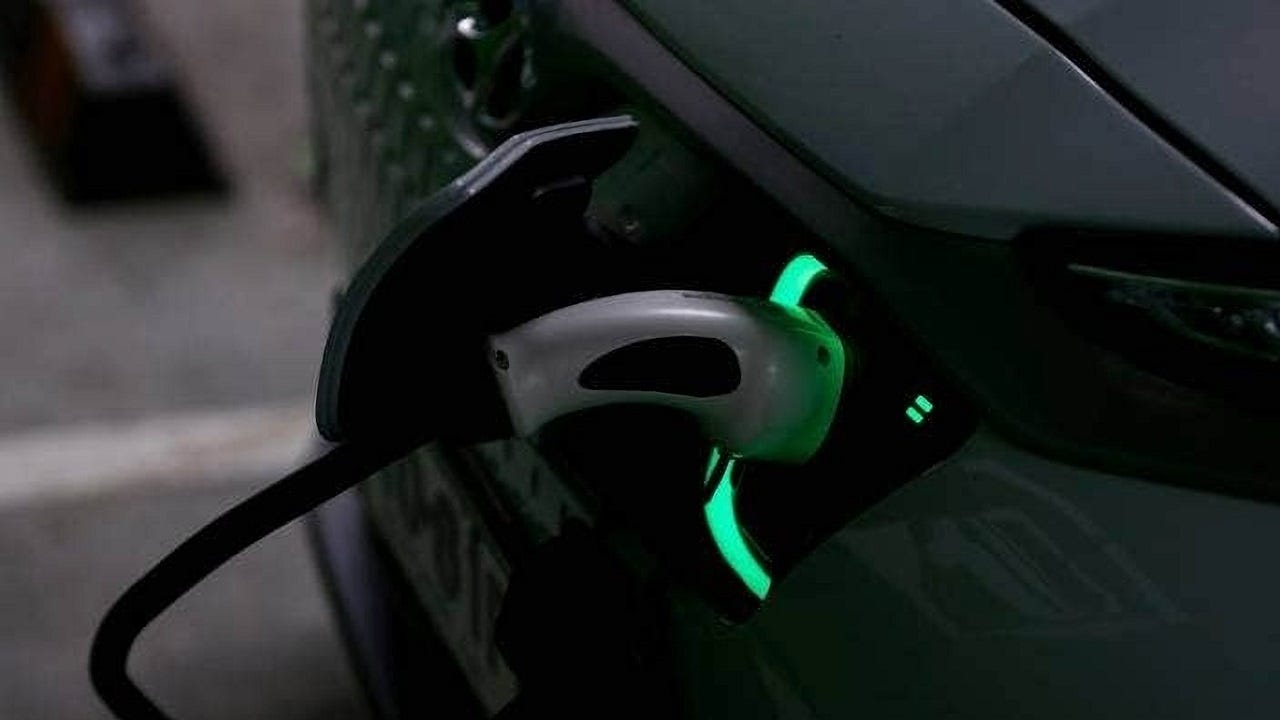Saudi's electric dreams
Are Saudi's electric vehicle dreams becoming reality?
Saudi Arabia's first EV Auto Show took place in Riyadh last week (November 1-3) at the Al Fasaliah Hotel Riyadh, with quite a modest exhibition of global automotive manufacturers, plus a few electric charging companies and other ecosystem players. With the combined number of both hybrid and electric vehicles sold in the Kingdom last year amounting to less than 3 percent of all new vehicles sales, it's early days for the country's EV sector.
Petromin-Nissan, which had a prominent presence in the show (sponsored by its new e-mobility solutions provider Electromin) displayed Nissan's all-electric crossover SUV the ARIYA (2022), but was not able to tell media when Nissan's EVs would be available in the country. Electromin has previously been quoted as saying that there is a reluctance among Saudi consumers to buy EVs, often due to doubts about the availability of charging stations.
Consumer doubts are well-founded and a 2021 AT Kearney survey cited that 33 percent of Saudi respondents would be more inclined to buy an EV if there was a greater availability of charging stations. In fact, this is the primary driver behind Electromin's current programme of building out a network of 100 electric charging stations across Petromins car service centres and field operations. Although this is the boldest EV charging programme to be announced so far, Electromin is not alone.
One of Saudi Arabia's biggest petrol station operators, SASCO, began installing a limited number of EV charging points in 2019. Meanwhile, a number of other petrol and car service networks have now announced plans for EV charging stations, including TotalEnergies. Outside of petrol services networks, EV charging stations are beginning to pop up at shopping malls, universities and in other communities.
This said, it is only during the past few months that the Saudi government has finalised the regulations and procedures for installing and operating EV charging stations.
However, Saudi Arabia is a place where governmental priorities can help to bring widespread change in a very short period of time. And, following the announcement of the Saudi Green Initiative last year and the government's commitment to achieve net-zero carbon emissions by the year 2060, coupled with its objectives to ramp up local manufacturing production, electric vehicles seem to have been made a national priority. Earlier this year, Electromin quoted unnamed studies of the Saudi automotive market claiming that EV sales over the next 8 years could total 1.3 million vehicles.
In April, we began to see how the electrifying of Saudi Arabia's automotive sector might be achieved, with the announcement by PIF-backed, California EV startup Lucid Motors that the Saudi government had agreed to purchase up to 100,000 of the company's luxury saloon cars over a ten year period. It was also revealed that the government would support a plan to build and operate a Lucid production plant in King Abdullah Economic City (KAEC), with an initial production capacity of 34,000 electric vehicles per year.
The next month it was confirmed at a Riyadh press conference that Lucid's production plant would receive a total of $3.4 billion in financing and incentives over the next 15 years. During the World Economic Forum's Davos event the same week, the Saudi minister for investment His Excellency Khalid Al Falih told media that the plant was likely to be one of three electric vehicle manufacturing plants that would be established in the country.
Last week, in the final hours of Riyadh's EV Auto Show, the world heard of the second electric vehicle manufacturing plant to be built in the Kingdom. Saudi Arabia's Crown Prince Mohammed bin Salman announced Ceer, the first Saudi electric vehicle brand.
A Public Investment Fund joint venture with global contract manufacturing group Foxconn, Ceer expects its first electric vehicles to roll off the production line in 2025. The new venture plans to develop a varied portfolio of vehicles and is partnered with BMW as the component technology provider. Ceer could bring more than $150 million in foreign direct investment (FDI) and contribute $8 billion to Saudi GDP by 2034.
Both Lucid and Ceer production plants will harness some of the world's most advanced manufacturing processes, leveraging AI, robotics, IoT, digital twins and other new technologies - and therefore requiring a highly skilled workforce. Earlier this year, Lucid announced that its plant would create more than 4,500 jobs. Meanwhile, PIF projects that that Ceer could create up to 30,000 direct and indirect jobs. Beyond the numbers, these companies will create the programmes, partnerships and processes to train, onboard and develop Saudi talent for Industry 4.0 manufacturing.
According to a speech by Minister of Communications and Information Technology Abdullah Alswaha last month, Saudi Arabia will manufacture and export more than 150,000 electric cars in 2026. That's indicative of a market that buys hundreds of thousands of EVs, has hundreds of EV charging stations and has a EV manufacturing sector that employs thousands of direct and indirect workers.
Even with this year's electric vehicles sector announcements so far, this may seem an ambitious forecast. However, we're seeing this momentum at the beginning of Saudi Arabia's EV journey, then there's no telling how this will develop over the next few years.
And, after all, PIF may have at least one more EV manufacturing deal to announce!
Find out more about this story:
See my Linkedin post on the Ceer announcement.
Check out the Ceer website.
Read about Saudi's legal framework for EV charging.
See Middle East AI News 28-Apr-22 for details of Lucid's deal with the Saudi government: https://lnkd.in/dCMdup79 (Linkedin version)
This article first appeared on Linkedin.


